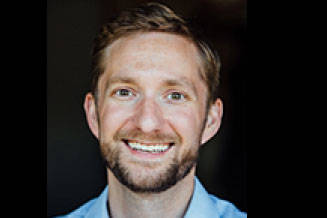Would the Founding Fathers recognize our polarized and dysfunctional political system? As Election Day approaches, the airwaves overflow with negative advertising and nary a solution to the problems that plague our state.
As Alaskans, we seem more divided today than ever before. Our hyper-partisan elections stop us from addressing our most significant challenges and building the Alaska all of us want for our children and grandchildren — one with a strong economy and safe communities.
Ballot Measure 2 offers a practical set of reforms to give voters more choice, more voice and more power. And as Alaskans, we believe improving the way we elect our representatives is a powerful prescription for better government.
Our current first-past-the-post, winner-take-all style elections are not working. Elections are supposed to be a competition of ideas, but when was the last time you heard a candidate offer anything more than a slogan to a problem? Instead of problem-solvers, our existing system produces politicians more interested in obtaining and retaining power than serving the people’s needs.
At the same time, our political system requires broad bipartisan support by design. It works best when elected officials from all sides are involved in the solution. That’s why we need an electoral system that reduces polarization and encourages politicians to work for voters.
There is a growing effort across the country to enact reforms at the state level that make our electoral processes more competitive. Without competition, there is no way for “We the people” to hold our elected officials accountable.
These reforms do not favor Republicans or Democrats. They empower ordinary citizens to ensure their votes count at least as much — if not more — than the insider influence wielded by deep-pocketed special interests.
Instead of the politics of personal destruction, we want elections where all eligible voters can participate in our democracy, and that elects winners with the broadest possible support of the community.
We believe this will encourage consensus building and result in policymaking to address the ongoing fiscal crisis, provide greater stability for economic development and job-creators, and attend to our most vulnerable citizens’ needs.
There is no other agenda.
Ballot Measure 2 is nonpartisan reform with three common-sense components. It increases transparency in campaign financing by shedding light on the dark money spending of special interests. It provides every voter with the opportunity to have their voices heard every time they step into the voting booth. And it eliminates voters’ worries about splitting the vote and allows them to choose the candidate they support the most without fear of helping elect one they like the least.
These are sensible changes that preserve what works about our current electoral system while addressing the shortcomings.
Under an open primary, all eligible voters receive a single ballot listing every candidate for each office, regardless of party. The top four vote-getters for each office advance to the general election, where voters can rank the candidates in order of their preference. The winner in the general election is the first candidate to earn a majority — more than 50% — of the votes cast.
Our opponents like to point to the last reform, ranked-choice voting, as some strange experiment. But the truth is that ranked-choice voting has been in use for over 100 years, all over the world, and is an increasingly popular style of voting that boosts turnout and participation and encourages politicians to campaign on issues rather than the politics of personal destruction.
Ranked-choice voting is used statewide in Maine and for municipal elections in 18 cities nationwide. Both red and blue states have adopted ranked-choice voting. Utah in 2018 and Virginia in 2020 enacted legislation authorizing ranked-choice voting in local elections. Several southern states use ranked-choice voting for military and overseas voters to ensure they can participate in runoff elections.
Ranked-choice voting is also used by colleges and universities, private nongovernment organizations and even the Academy of Motion Picture Arts and Sciences for deciding the prestigious Academy Awards. It’s simple and has a proven track record of electing candidates who have the broadest possible support.
These common-sense reforms frighten our opponents because they threaten the incumbent protection racket of the status quo. We offer no apologies. Elections are for voters, not politicians or their special interest backers.
Politics is supposed to be an activity in which equals participate in making collective decisions, but our current system leaves far too many Alaskans out in the cold. Over 60% of voters here choose not to affiliate with either the Republican or Democratic parties — yet these two partisan organizations can decide who’s allowed to vote in their private primaries paid for with public dollars.
The way we vote now limits our choices and fails to hold the elected accountable to the communities they represent. We need a better way to select our representatives. The best ideas should decide who wins, not the biggest bank account or outdated election rules that tip the balance of power to the parties instead of the people.
As Election Day draws near, we encourage you to remember that you have the power to change our elections for the better.
Ballot Measure 2 empowers you — the voter — giving you more choices and ensuring you have a voice in every election. Our current system isn’t working. These reforms can help unite us as Alaskans and move us toward a better future.
Jason Grenn is a lifelong Alaskan, former independent member of the House of Representatives, and father of three raising his family in Anchorage.
• By Jason Grenn

